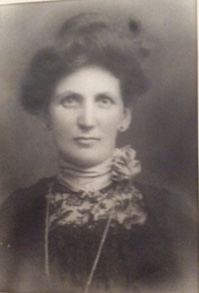"The Luckiest Orphans"
I know what you are thinking. How can an orphan be lucky?
Well, the Hebrew Orphan Asylum's orphans in New York City at the turn of the century were just that. Lucky. It was a Jewish orphanage founded in 1861 and closed in 1941. But this was not your ordinary depressing orphanage. It was the most well-funded, well-endowed orphanage in the history of orphanages. It was a loving and caring environment and was more like a boarding school than an orphanage.
Children went there when one of their parents died, and the other parent had to go to work (or other reasons, I’m sure). But you had to be Jewish, and you had to live in Manhattan. This happened to my step-father, Doug's grandmother, Anna Nowve, and how I came to know about the Hebrew Orphan Asylum. Louis Nowve, Anna's father, died suddenly at the age of 40 of Tuberculosis.
Can you imagine? Just put yourself in his wife’s shoes for a minute. Louis's wife, Fannie Nowve, didn’t have a job and, as a married woman with four children, would have been a housewife raising their children while her husband worked. Louis Nowve was a shoemaker and suddenly took sick and died. It’s 1899. There’s no welfare, food stamps, WIC, healthcare, or government assistance of any kind. There’s no money coming in. Zero. How does she pay for food, rent, and living expenses? They were Hungarian immigrates that were relatively new to this country, and I’m guessing they didn’t have any kind of savings. They lived in Lower Manhattan, a melting pot of immigrants and not exactly cheap to live, even back then. I don't think they had any family around to help.
Just think about the impact this event would have on you. You suddenly lose your husband, who you followed half-way across the world to move to an entirely new country where everyone speaks a different language than you. You have to find a job that will take care of you and your four children. You have no job or career, so what in the world can you do to make enough money to take care of all of them? Who’s going to look after your children while you are working if you have no family around? What would you do? Fannie had no choice but to go to work. Her 16-year-old son, Herbert, also went to work. She turned to the Hebrew Orphan Asylum for assistance. Six-year-old Anna, and five-year-old, Max went to the orphanage at the end of 1899. A few months later, in May 1900, four-year-old Henry was admitted too. Can you imagine how Fannie must have felt at this point in her life? She must have had some incredibly emotional and challenging days.
After eight months in the orphanage, Henry was discharged in January 1901. We don’t have an exact date, but Anna and Max were likely discharged around that time. There is no doubt that these children were well cared for. Fannie likely got to see her children often during their stay at the orphanage. Given the short time that Henry was in there, eight months was probably a lifetime away from him at that age. As a mother, could you put your babies somewhere where you couldn’t see them every day? Imagine her anguish.
 |
| Frances Gross Nowve circa 1890 |
The next record found was the 1910 census. The family was living together in lower Manhattan, and they were all working. Fanny became a caterer, and her specialty was Hungarian cooking. (One of her great-granddaughters still has one of the Hungarian bowls she used.) Herbert, the oldest child, was 24 and an actor in Vaudeville. His stage name was Bert Bernard. He worked as an actor all his life. (Kudos to Herbert for helping his mother take care of his siblings!) 16-year-old Anna was a stenographer, 15-year-old Max was a shipping clerk. 14-year-old Henry was a clerk. So although they were all working very young, that did not limit them. Henry became a lawyer!
The Hebrew Orphan Asylum was a blessing in disguise for Fannie and her children. What would have been devastating for these children was a wonderful, loving experience. There’s a book about the orphanage called “The Luckiest Orphans: A History of the Hebrew Orphan Asylum” by Hyman Bogen that is on my read list.
I wish I could go back in time to talk to Fannie about the events that would unfold. I am so impressed by her. Not only did she provide for her family in light of a horrible situation, but her children blossomed and went on to have wonderful lives. Fannie also blossomed. She became a pretty big deal caterer in Manhattan at that time. What a strong woman!
You are pretty remarkable Frances Gross Nowve. I’m grateful to be related to you if you’ll have a shiksa granddaughter like me, if only by marriage.


Comments
Post a Comment